Why did Dr. Inufusa start antioxidant research?
February 12, 2021
Why did Dr. Inufusa start antioxidant research?
I originally worked as a surgeon at Kinki University School of Medicine for 25 years, mainly performing laparoscopic surgery for colon cancer.
However, the number of cancer patients did not decrease no matter how many surgery was performed, and some of the patients I operated had cancer recurred and unfortunately passed away. I gradually came to think that I wanted to do something about this situation.
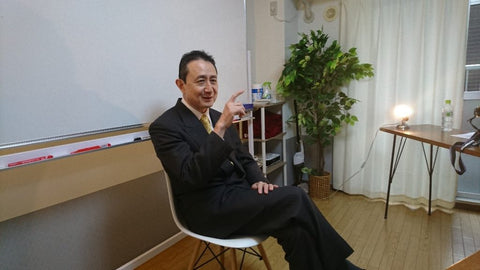
From Surgeon to Researcher
In fact, I have been doing research on cancer for a long time. The first time was when I was just starting out as a doctor; I got my medical license in 1982, and after finishing my residency, I went to graduate school to do research on “cancer” itself and how to suppress the metastasis of cancer.
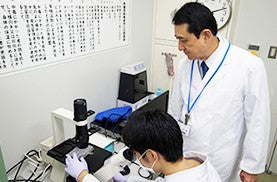
After I became a surgeon, I continued to do research on how to suppress the progression of cancer and prevent metastasis during and after surgical treatments.
Evidence gradually started to emerge, and I wrote a number of papers and became a professor, but it was not very satisfactory. Even though I was able to produce evidence-based data at the laboratory level, it was completely useless when it came to whether or not it would actually help patients.
I kept thinking, “I can’t go on like this, I have to do more better research that would lead to a cure. It was then that I had an unexpected encounter that led me to start my research career.
The very first “trigger” was
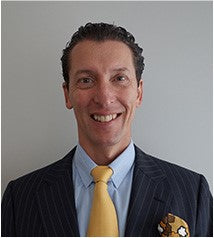 Markus Matuska Greifenkrau
Markus Matuska Greifenkrau
President, TIMA Foundation, a European medical foundation from Germany*1
I have a friend, President Markus*1, who is a German Count and the President of the TIMA Foundation. One day, a year or two after I got to know him, he asked me the following question.
“Have you ever worked with alcohol?”
It is true that we have looked at data on the relationship between alcohol consumption and cancer development, but we have never made a serious effort. I was momentarily taken aback, but Dr. Marcus continued.
“I’m trying to make something that will speed up the metabolism of alcohol and reduce the health effects of alcohol. I’m trying to create something that will speed up the metabolism of alcohol and reduce the health hazards of alcohol. So, I need your help.”
Oh, I see, that’s one way to approach it. That sounds interesting. This was just in 2003.
It all started with “Alcohol Metabolism Research.
The first thing we did after we started cooperating with the research requested by Chancellor Marcus was to verify the medicinal ingredients. We narrowed down the candidates from the ingredients that were said to enhance alcohol metabolism, and used them alone or in different combinations.
The results came out earlier than expected. It was almost a year after I was asked to cooperate in the research.
The result is now a product called “SUPALIV,” which can be found in FamilyMart stores.
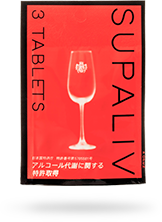
Our test results show that this “SUPALIV” actually dramatically increases the metabolism of alcohol and acetaldehyde. We feel that even halving the health damage caused by alcohol is not a dream.
Connected Research: “Glucose Metabolism from the Perspective of Alcohol Metabolism
When I was doing research on alcohol metabolism, I noticed that if I slightly changed the ratio of the ingredients that I combined, the metabolism of sugar in my body advanced. Therefore, I had a feeling that this research could be used for diabetes.
I told Chancellor Marcus “I think I have something that could be very effective for diabetes”.
He said, “Then I will fund your research!”
Quit university to become a researcher
Actually, I wanted to do research on glucose metabolism, which is connected to alcohol metabolism, at Kinki University, where I have been for many years.
I said this directly to Chancellor Seko, who was the president at the time.
I told him “I would like to establish a laboratory and conduct research because I know person who will give me money for that.”
He said no because there was no system of “Endowed Chairs” at that time.
When I talked to Chancellor Marcus about it, he said “Why don’t you quit the university?
He said, as I thought about it, there are many junior doctors who can operate on cancer instead of me.
But I can’t leave my current research to someone else. “This research can only be done by me!” I thought, and decided to quit the university.
From glucose metabolism to antioxidant research
When I began to focus on research, I worked very hard to study sugar metabolism. After testing countless ratios of ingredients, I had a pretty good idea of what I was looking for in terms of sugar metabolism. It was around this time, in 2005, that the recipe for “Twendee X” was created.
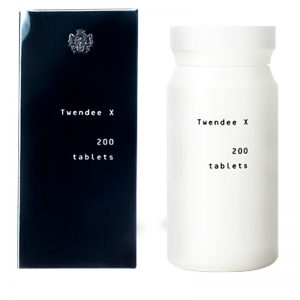
Then, in 2011, Dr. Helmut, a radiation physicist at a large university in Regensburg, Germany, contacted me through the director of a drug development company that President Markus owns.
Dr. Helmut, the director of a drug development company that President Markus owns, told me, “I’ve heard a lot about Twendee X. It seems to have a lot of antioxidant power! Let’s take a test!”
“Let’s measure it!”, he offered to do so.
When I saw Dr. Helmut’s actual data, I was astonished to find that in 2011, it was the “most potent antioxidant in the world.
I thought, “If that’s the case, why not do some research on antioxidants?
I started animal experiments in the fall of 2011. As soon as I started researching, I found out that antioxidants are also incredibly effective.
As an antioxidant researcher at Gifu University
If you want to do even antioxidant research, it is almost impossible without a university with full-scale facilities and systems.
Therefore, in 2013, I went to Gifu University to ask them to make room for me. Fortunately, Gifu University had a system of “Endowed Chairs”, so I asked them to open an “Endowed Chair” in April 2013, and in November of the same year, they opened the course.
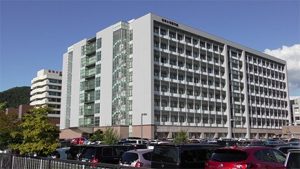
From there, antioxidant research began in earnest. At present, we are spending a total of probably more than a billion yen on research. We are now in the process of accumulating evidence for antioxidant-related effects. I am looking forward to the future.

